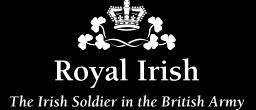Paymaster of the 87th Dismissed
The Grand Jury Room in the county of Chester was the scene of a General Court Martial where Paymaster John Sherlock of the 87th of Foot (Royal Irish Fusiliers) was arraigned as a prisoner on 17 September 1828. The main charge being:
'For scandalous and infamous conduct unbecoming his situation as Paymaster of the 87th (or Royal Irish Fusiliers) regiment of foot, viz.:
followed by nine separate indictments. The first of these was that he absented himself on 28 April 1828, having on his person around £593 in gold and banknotes, a sum that he acknowledged was public money. Others listed concerned 'embezzling or fraudulently misapplying' in total around £2,256. This was indeed an enormous sum of money in 1828, and there were other aspects that confirmed that his conduct was indeed 'scandalous and infamous' including sums stolen from the Regiment's fund for deceased soldiers' families (especially Sergeant Major Simmons's orphans), hospital savings, school funds, charitable funds and a variety of sums from unpaid bills to contractors and agents. He even embezzled the sum of £237 12s 9d that was due for the Colonel of The Regiment, General Sir John Doyle.
He was found guilty on all nine counts and was sentenced to be dismissed from His Majesty's service and barred from ever holding any civil or military office in the future and ordered that 'he do make good the amount of the sums so proved against him in the several charges'. Confirmation of sentence was promulgated by Horse Guards on 16 December 1828.
The involvement of The Colonel of The Regiment was because a 'premium' was owed to General Sir John for bills paid in India for regimental clothing. Colonels first appointed civilian agents in the 17th century to manage their regiment's finances. Civilian companies were contracted in the 18th century to provide 'paymasters' and it was not until 1797 that the British Army appointed military paymasters with the rank of captain. The Army Pay Department was established in 1878 but it was not until 1893 that the Army Pay Corps was established to provide the Paymaster with his administrative and clerical pay staff.





